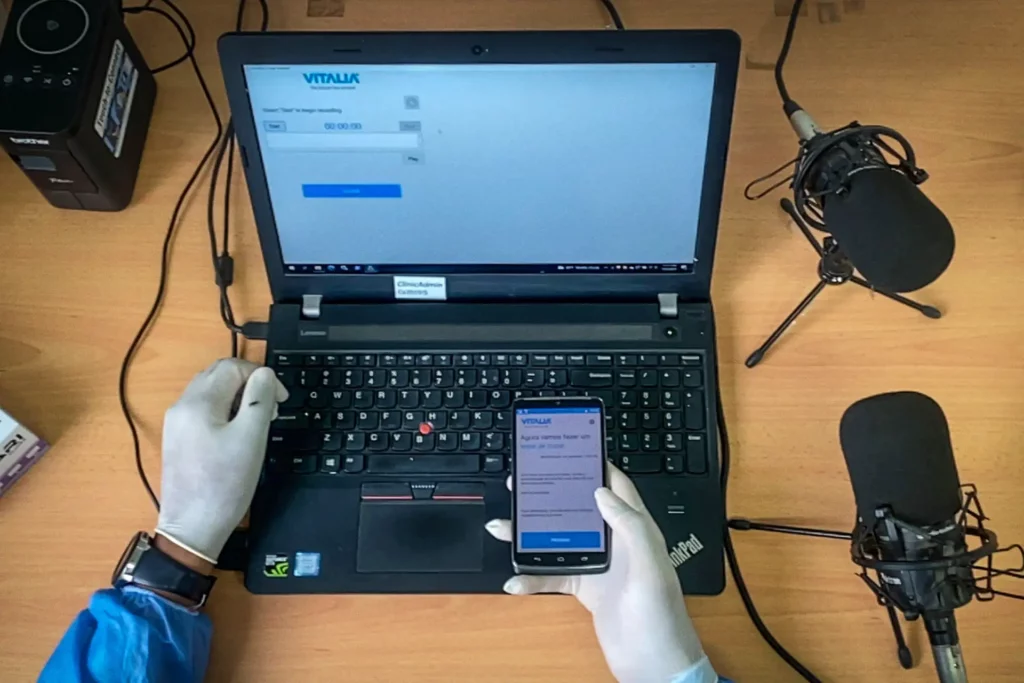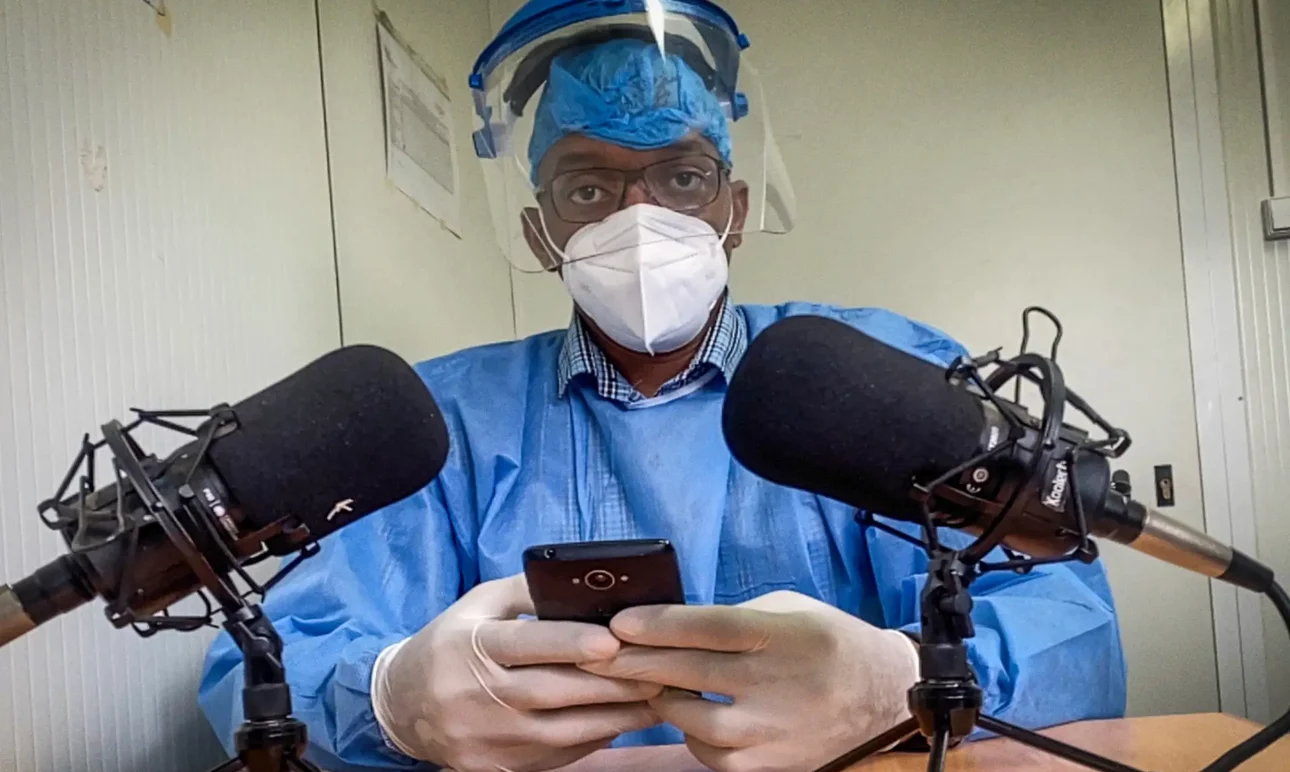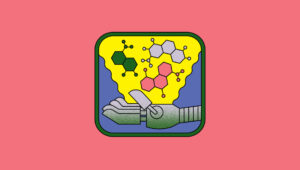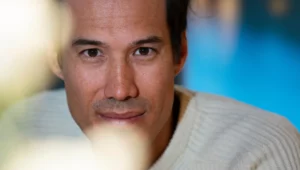A few times a month, Dr. Khosa lays out a couple of smartphones, two microphones and stands, a laptop and MIDI recorder on his desk and invites patients in. An outsider might guess he’s about to record a podcast, but Khosa is a medical doctor and lead researcher at Polana Caniço Health Research and Training Center – known as CISPOC – a research centre in Maputo, affiliated with Mozambique’s National Health Institute. He’s leading a clinical trial of sci-fi technology.
Tuberculosis, or TB, is a leading cause of death in Sub-Saharan Africa. In Mozambique, in particular, TB cases are persistently high with 361 per 100,000 people infected, according to WHO figures. One factor is the detection rate has historically been low. Up until from 2000-2010 nearly half of those who suffered or died from TB went undiagnosed or untreated. About half the population lives at least 20 kilometres from a healthcare facility, according to a WHO estimate, frustrating efforts to both detect and treat the disease.
In the past five years however, it has improved to 88% detection rate thanks to the work of medical officials like Khosa.
“We also have a triple burden of TB with high drug resistance as well as TB and HIV co-infection,” Khosa adds. TB is the main cause of death among HIV patients, whose immune systems are severely weakened, in Mozambique.
These factors all link to the AI solution clinical trial that Dr. Khosa is leading. Working with one of the Qualcomm Tricorder XPRIZE winners, he’s testing a potential way to identify TB cases through a mobile phone app that analyses the sound of a person’s cough. The XPRIZE competition was inspired by the sci-fi series “Star Trek.” In the original TV series, future doctors carried fictional handheld “Tricorder” devices that used an array of sensors to instantly diagnose ailments.

This idea of AI potentially being able to diagnose by sound alone is intriguing. It’s potentially a game changer for improving access.
“Even those in extremely remote areas have access to a smartphone and this proportion is increasing,” Khosa tells me. “We hope that once the app becomes available to the public, patients can simply download it and cough into their phones when they develop an illness that manifests with a cough. This will improve health-seeking behavior as well as the diagnosis of TB, particularly in rural areas.”
Once the microphones are set up, study participants are asked to cough five times – the cough is recorded simultaneously by a smartphone and a high quality microphone. Participants fall into three categories, TB cases, patients with other respiratory diseases that have cough as a symptom, such as Covid-19, and healthy individuals as the control group.
Even after listening to hundreds of coughs, Khosa can only note differences he, like other physicians, perceive as obvious. Historically, he says, one of the few illnesses doctors can identify by its characteristic cough sound is pertussis, or whooping cough, which has a unique barking quality.
After the recording sessions, the sound files along with spirometry and lung function tests, are sent to Cloud DX, a Canadian-born healthcare startup and a co-winner of the Tricorder XPRIZE.
“It’s technology that’s straight out of a sci-fi movie.”
Celso Khosa, Tricorder XPRIZE clinical trial lead
There, a deep learning model analyses the cough “signatures” looking for patterns that are imperceptible to the human ear and brain. The AI model works to determine whether the cough is likely due to TB or another illness. The more recordings the team can collect, the more likely the AI will be able to recognise the unique patterns within a TB cough. He says his team is 75 percent on the way there in collecting the data needed. So far, his team has collected nearly 14,300 cough recordings in 4,260 recording sessions.
Working with “technology that’s straight out of a sci-fi movie is truly inspiring,” Dr. Khosa says. “It fits in rather poetically with my institution’s mission to generate technological and creative solutions to the major health problems in Mozambique.”
It would be nearly impossible to provide a full inventory of how AI and digitisation are transforming patient care across Africa. However, after sharing my experience in Kenya, along with LifeBank and Dr. Khosa’s Tricorder trials, InstaDeep’s Said could see clear connections. “All these parts are complementary. These pieces fit together like a puzzle.”
Digitisation is the crucial foundation, he says. From there, the combination of AI and blockchain can guarantee trust, transparency and traceability in the medical supply chain. AI learning can then scale insights and help doctors identify their patients’ ailments, those data problems, and provide better treatment. Perhaps, technology can also help treat what ails countries’ healthcare systems themselves that are plagued by inefficiency, communication breakdowns and, in some cases, corruption.
As a young doctor, at times it can feel like all you see is inertia when it comes to adapting new technology, especially as it accelerates faster than hospital budgets or work culture. Even so, it’s inspiring to see doctors like Dr. Khosa, with his sci-fi movie anti-TB tools, embracing technology to give poor and often marginalised patients a fighting chance. The future is in sight.




